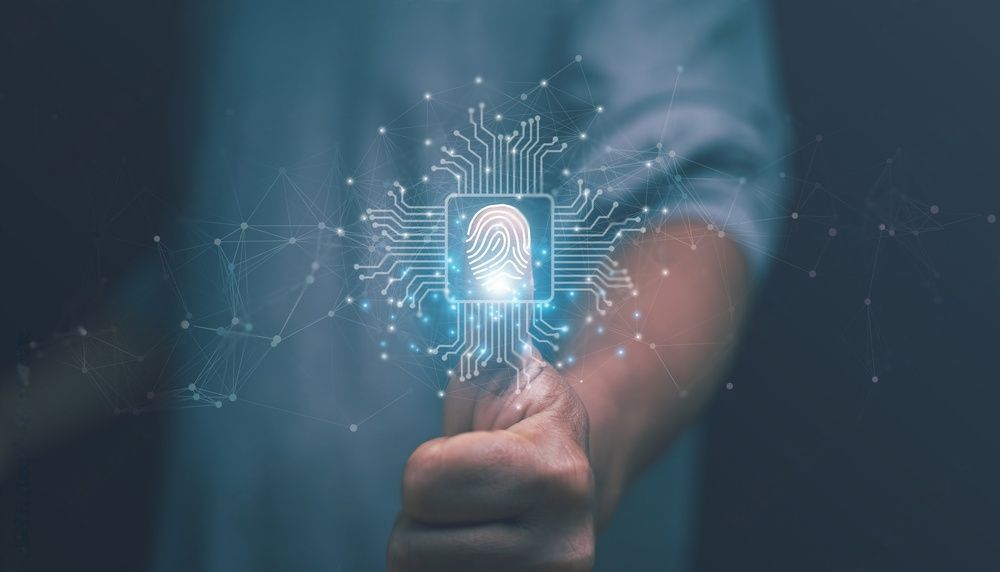The Dark World of Cybercrime: How Private Detectives Tackle Online Threats
Introduction
In today’s interconnected world, the rise of cybercrime has become an alarming reality. The rapid advancements in technology have given birth to a parallel universe where criminals operate with anonymity and exploit unsuspecting individuals and businesses. This dark world of cybercrime poses significant threats that can have devastating consequences.
In the midst of this digital chaos, private detectives emerge as unsung heroes, relentlessly fighting against the invisible enemy. Their expertise and specialized skills are essential in tackling the complex and ever-evolving landscape of online threats. In this article, we delve into the depths of cybercrime and shed light on how private detectives navigate this treacherous terrain to protect individuals and organizations.
Cybercrime encompasses a wide range of illicit activities, including hacking, identity theft, phishing, financial fraud, and much more. These crimes not only target individuals but also corporations, governments, and critical infrastructure, causing financial losses, reputational damage, and compromising personal and sensitive information.
Private detectives play a pivotal role in combating cybercrime, working hand-in-hand with law enforcement agencies and leveraging their unique expertise to investigate and gather evidence in digital environments. Unlike traditional law enforcement, private detectives possess the flexibility and agility to respond quickly to emerging threats and adapt their investigative techniques to the rapidly evolving tactics employed by cybercriminals.
Throughout this article, we will explore various types of cybercrimes investigated by private detectives, such as online fraud, cyberstalking, intellectual property theft, data breaches, and corporate espionage. We will delve into the investigative techniques employed by these skilled professionals, including digital forensics, open-source intelligence gathering, undercover operations, and covert monitoring.
To provide a comprehensive understanding of the subject, we will also present real-life case studies that highlight the successful outcomes achieved through the work of private detectives. These cases will illustrate the challenges faced and the innovative strategies employed by these professionals to bring cybercriminals to justice.
Collaboration between private detectives and law enforcement agencies is crucial in the fight against cybercrime. We will explore the intricacies of this partnership, along with the legal considerations and ethical boundaries that private detectives must navigate in their investigations.
As we move forward, we will also discuss the future trends and challenges in combating cybercrime. With technology evolving at an unprecedented pace, cybercriminals continually adapt and develop new techniques. Private detectives must stay ahead of the game by embracing advanced tools, ongoing training, and collaborative efforts to stay one step ahead of these malicious actors.
Understanding the Landscape of Cybercrime
The landscape of cybercrime is vast and ever-expanding, presenting a myriad of threats that target individuals, businesses, and even governments. To effectively tackle online threats, it is crucial to gain a comprehensive understanding of this dark and intricate world. In this section, we will explore the definition of cybercrime, its various forms, and the role of the dark web in facilitating these illicit activities.
A. Definition of Cybercrime and its Forms
- Cybercrime refers to criminal activities conducted through digital means, exploiting vulnerabilities in computer systems, networks, and individuals.
- Common forms of cybercrime include:
- Hacking: Unauthorized access to computer systems or networks to steal information, disrupt operations, or gain control.
- Identity theft: The fraudulent acquisition and use of someone’s personal information, typically for financial gain.
- Phishing : Deceptive techniques used to trick individuals into revealing sensitive information, such as passwords or credit card details.
- Online fraud : Various schemes aimed at defrauding individuals or organizations, such as advance-fee fraud, pyramid schemes, or fake online stores.
- Ransomware: Malicious software that encrypts victims’ data, demanding a ransom for its release.
- Cyberstalking and harassment: Persistent harassment, threats, or monitoring of individuals through online platforms.
- Intellectual property theft : Unauthorized acquisition, use, or distribution of copyrighted material, trade secrets, or patents.
- Data breaches: Unauthorized access or exposure of sensitive information, often leading to identity theft or financial loss.
B. Statistics on the Rise of Cybercrime
- Present relevant statistics to highlight the magnitude and impact of cybercrime:
- The increasing number of reported cybercrime incidents globally.
- The financial losses incurred by individuals and businesses due to cyberattacks.
- The growing sophistication of cybercriminal tactics, resulting in higher success rates.
- The rise of cybercrime-as-a-service, where criminals can purchase hacking tools or services on the dark web.
C. The Dark Web: Facilitating Cybercrime
- Explain the concept of the dark web and its role in facilitating cybercriminal activities:
- The dark web refers to encrypted, anonymous, and unindexed parts of the internet.
- Criminals utilize the dark web to conduct illegal activities, such as selling stolen data, malware, drugs, weapons, and hacking services.
- Highlight the challenges associated with investigating crimes conducted on the dark web, including anonymity and the use of cryptocurrencies for transactions.
By understanding the forms of cybercrime, the alarming statistics surrounding its rise, and the role of the dark web in facilitating illicit activities, we can begin to grasp the magnitude of the challenges faced by private detectives in their fight against online threats. In the next section, we will delve into the specific role that private detectives play in combating cybercrime and the specialized skills they bring to the table.
Types of Cybercrimes Investigated by Private Detectives
Private detectives play a crucial role in investigating and combatting a wide range of cybercrimes. Their expertise and specialized knowledge enable them to tackle various online threats that individuals, organizations, and even governments face. In this section, we will explore some of the key types of cybercrimes that private detectives investigate.
A. Online Fraud and Financial Scams
- Private detectives investigate and uncover online fraud schemes, such as:
- Phishing scams: Identifying and tracking individuals or groups behind phishing attacks that aim to steal sensitive information like login credentials, credit card details, or personal identification.
- Investment scams : Investigating fraudulent investment schemes, Ponzi schemes, or cryptocurrency scams that deceive individuals into making financial investments with promises of high returns.
- Online auction fraud : Uncovering and pursuing perpetrators involved in fraudulent online auctions or sales, where buyers never receive the purchased items or sellers deceive buyers.
B. Cyberstalking and Harassment
- Private detectives help victims of cyberstalking and harassment by:
- Tracing online harassers : Investigating and identifying individuals responsible for persistent online harassment, threats, or intimidation.
- Gathering evidence for legal action : Collecting digital evidence, such as screenshots, online conversations, and IP addresses, to support victims in legal proceedings against their cybers talkers.
C. Intellectual Property Theft
- Private detectives assist businesses and individuals in cases involving intellectual property theft, including:
- Identifying copyright infringements : Conducting investigations to uncover individuals or organizations involved in the unauthorized use or distribution of copyrighted materials, such as music, movies, software, or written content.
- Trade secret theft: Investigating cases where employees or competitors steal trade secrets, valuable business information, or proprietary technology.
By focusing their expertise on investigating online fraud, cyberstalking, intellectual property theft, data breaches, and corporate espionage, private detectives play a vital role in mitigating the impact of cybercrime on individuals and organizations. In the next section, we will explore the investigative techniques employed by private detectives to uncover and gather evidence in the complex world of cybercrime.
Investigative Techniques Employed by Private Detectives

Private detectives utilize a range of specialized techniques and tools to investigate cybercrimes and gather crucial evidence. These techniques allow them to navigate the digital landscape, trace online activities, and uncover the identities of cybercriminals. In this section, we will explore the investigative techniques employed by private detectives in tackling online threats.
A. Digital Forensics
- Private detectives utilize digital forensics to analyze digital evidence and trace cybercriminal activities. This includes:
- Data recovery and analysis: Examining storage devices, computer systems, or mobile devices to recover deleted or hidden data that may provide valuable insights into cybercrimes.
- Network analysis: Investigating network traffic, logs, and communication patterns to identify potential points of compromise and trace the origin of cyberattacks.
- Malware analysis: Analyzing malicious software to determine its functionality, identify its source, and gather evidence related to its deployment or distribution.
B. Open-Source Intelligence (OSINT) Gathering
- Private detectives leverage OSINT techniques to gather information from publicly available sources. This includes:
- Social media intelligence: Monitoring social media platforms to identify potential suspects, track their activities, and gather evidence related to cybercrimes.
- Online forums and communities: Engaging with online forums or communities frequented by cybercriminals to gather information, uncover new threats, and identify potential sources of illicit activities.
- Domain and email tracing: Tracing the origin of suspicious domains or email addresses to establish connections, identify perpetrators, and gather evidence.
C. Undercover Operations and Infiltration
- In certain cases, private detectives may employ undercover operations to gather intelligence and infiltrate online criminal networks. This includes:
- Posing as potential victims or buyers : Engaging with cybercriminals on the dark web or online black markets to gather information, uncover their tactics, and establish contact with key individuals involved in cybercrimes.
- Infiltrating hacking communities: Participating in online hacking communities or forums to gain insights into hacking techniques, identify potential threats, and gather evidence.
- Covert monitoring: Conducting surveillance on individuals or groups suspected of engaging in cybercrimes, monitoring their online activities, and documenting their behaviors.
By utilizing digital forensics, OSINT gathering, undercover operations, and covert monitoring, private detectives possess the necessary tools and techniques to uncover and gather evidence in the complex realm of cybercrime. In the next section, we will explore real-life case studies that exemplify the successful work of private detectives in solving cybercrimes.
Collaboration with Law Enforcement and Legal Considerations
Private detectives engaged in tackling cybercrime often work closely with law enforcement agencies to ensure effective investigation, prosecution, and resolution of cases. Collaboration between these entities is essential in combating the complex and cross-border nature of cybercrimes. In this section, we will explore the collaboration between private detectives and law enforcement, as well as the legal considerations that govern their work in the realm of cybercrime.
A. Collaboration with Law Enforcement Agencies
- Information sharing : Private detectives share relevant information, intelligence, and evidence with law enforcement agencies to support ongoing investigations.
- Joint investigations : Private detectives and law enforcement agencies collaborate on joint investigations, combining their expertise and resources to gather evidence, identify suspects, and bring them to justice.
- Task forces and partnerships: Private detectives may join specialized task forces or form partnerships with law enforcement agencies to address specific cybercrime challenges, pooling their knowledge and capabilities.
- Mutual assistance: Private detectives and law enforcement agencies may provide mutual assistance in cross-border cases, cooperating with international counterparts to investigate cybercrime s that transcend national boundaries.
B. Legal Considerations in Cybercrime Investigations
- Privacy laws : Private detectives must adhere to privacy laws and regulations when conducting cybercrime investigations, ensuring that they do not violate individuals’ rights to privacy or engage in unauthorized surveillance.
- Digital evidence collection: Private detectives must follow proper procedures for collecting digital evidence to ensure its admissibility in legal proceedings, maintaining chain of custody and adhering to digital forensic best practices.
- Jurisdictional challenges: Cybercrimes often span multiple jurisdictions, presenting challenges in terms of legal authority, extradition, and international cooperation. Private detectives must navigate these complexities while ensuring compliance with relevant laws.
- Legal limitations: Private detectives must operate within the boundaries of the law, refraining from engaging in illegal activities themselves, such as hacking or unauthorized access, to gather evidence.
C. Ethical Considerations and Privacy Concerns
- Ethical guidelines: Private detectives adhere to professional ethical guidelines and standards when conducting cybercrime investigations, ensuring integrity, confidentiality, and respect for individuals’ rights.
- Minimizing collateral damage: Private detectives prioritize minimizing collateral damage and unintended consequences that may arise during cybercrime investigations, taking precautions to protect innocent individuals and organizations from unnecessary harm.
- Privacy protection: Private detectives handle sensitive information with utmost care, employing encryption, secure communication channels, and data protection measures to safeguard individuals’ privacy during investigations.
By collaborating with law enforcement agencies, respecting legal considerations, and upholding ethical standards, private detectives are able to navigate the legal complexities of cybercrime investigations. In the next section, we will explore future trends and challenges in combating cybercrime as technology continues to evolve rapidly.
Conclusion
The dark world of cybercrime is explored in this article as we delve into the various forms of online threats and the crucial role private detectives play in tackling them. Discover the landscape of cybercrime, the investigative techniques employed, and the collaboration with law enforcement. Gain insights into emerging trends, technological challenges, and the legal considerations that shape the battle against cybercriminals. Uncover the future of combating cybercrime and the ongoing efforts to protect individuals and organizations from this ever-evolving menace.
In conclusion, the dark world of cybercrime is a pervasive and ever-growing threat in our interconnected society. Throughout this article, we have delved into the depths of cybercrime, shedding light on the various forms of online threats and the vital role played by private detectives in tackling them.
We have explored the landscape of cybercrime, including the definition of cybercrime and its numerous forms, from hacking and identity theft to phishing and data breaches. The statistics on the rise of cybercrime highlight the urgency of addressing this issue and the impact it has on individuals and businesses.
Private detectives emerge as unsung heroes in the fight against cybercrime. Their expertise, specialized skills, and investigative techniques are essential in uncovering cybercriminal activities, gathering evidence, and bringing perpetrators to justice. From digital forensics and open-source intelligence gathering to undercover operations and covert monitoring, private detectives employ a range of tools and techniques to combat online threats.
Collaboration between private detectives and law enforcement agencies is crucial in addressing the complexity and cross-border nature of cybercrimes. By working hand-in-hand, they share information, pool resources, and conduct joint investigations to effectively combat cybercriminals.
We have also explored the legal considerations and ethical boundaries that guide the work of private detectives in cybercrime investigations. Respecting privacy laws, collecting digital evidence properly, and minimizing collateral damage are essential aspects of their work.
Looking to the future, we recognize the emerging trends and challenges in combating cybercrime. AI-powered attacks, IoT vulnerabilities, and nation-state-sponsored attacks pose ongoing threats that require continuous adaptation and advanced techniques. Private detectives need to continually enhance their skills, collaborate extensively, and secure adequate resources to stay ahead of cybercriminals.
In the end, the fight against the dark world of cybercrime requires collective efforts, technological advancements, and robust legal frameworks. By staying informed, taking preventive measures, and seeking professional assistance when needed, individuals and organizations can strengthen their defenses against cybercriminals and protect themselves from the perils of the digital world. Together, we can work towards a safer and more secure cyber landscape.

Browse our website
Contact Information
Phone: (415)-926-3440
Email: foglightpi@gmail.com
Business Hours: 24/7
License #28391














